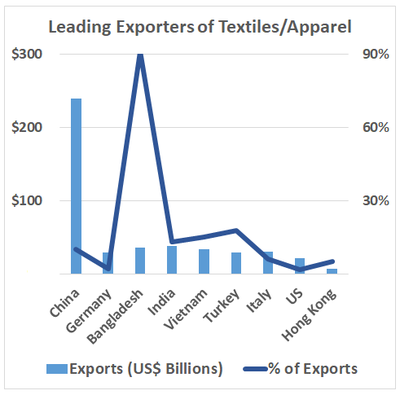Abandon Fast Fashion: McGill Tribune
Students question the wisdom of closets and drawers packed full of low-cost unusual clothing worn a few times. Consumers purchase more clothing than necessary, and so-called “fast fashion” has financial and environmental consequences. “Over the last five years in the fashion industry, an area dominated by gratuitous marketing, social media, and online shopping, consumers have increasingly rewarded brands that can keep up with rapidly-evolving trends,” writes Kennedy McKee-Braide for the McGill Tribune. Declining popularity of Forever 21 and other clothing chains signal that consumer tastes are changing. McKee-Braide points out that such fashion depends on outsourcing manufacture to poor nations with dangerous workplaces and workers who accept low wages. She explains how cotton requires large amounts of water and pesticides while microplastics from polyester and fleece products enter water supplies and food chains. She urges fellow students to rely on high-quality sustainable clothes and to question advertising and influencers, use delivery services sparingly and give thrift stores a try. high-quality, sustainable brands and giving thrift stores a try, though she warns: “students must keep in mind that many low-income families rely on inexpensive thrift stores to make their purchases and be prudent when buying thrifted clothing.” Young adults can lead on what choices are truly fashionable. – YaleGlobal
Abandon Fast Fashion: McGill Tribune
The young lead on fashion and good sense: Students embrace environmental awareness and reject the waste and worry of “fast fashion” as poor taste
Wednesday, October 23, 2019
Read the article from the McGill Tribune about the environmental and financial consequences of fast fashion.

Source of fast fashion? Countries like Bangladesh that rely heavily on apparel exports could suffer from changing trends in fashion (Source: MIT Observatory of Economic Complexity)
The McGill Tribune
Copyright © 2019 The McGill Tribune.